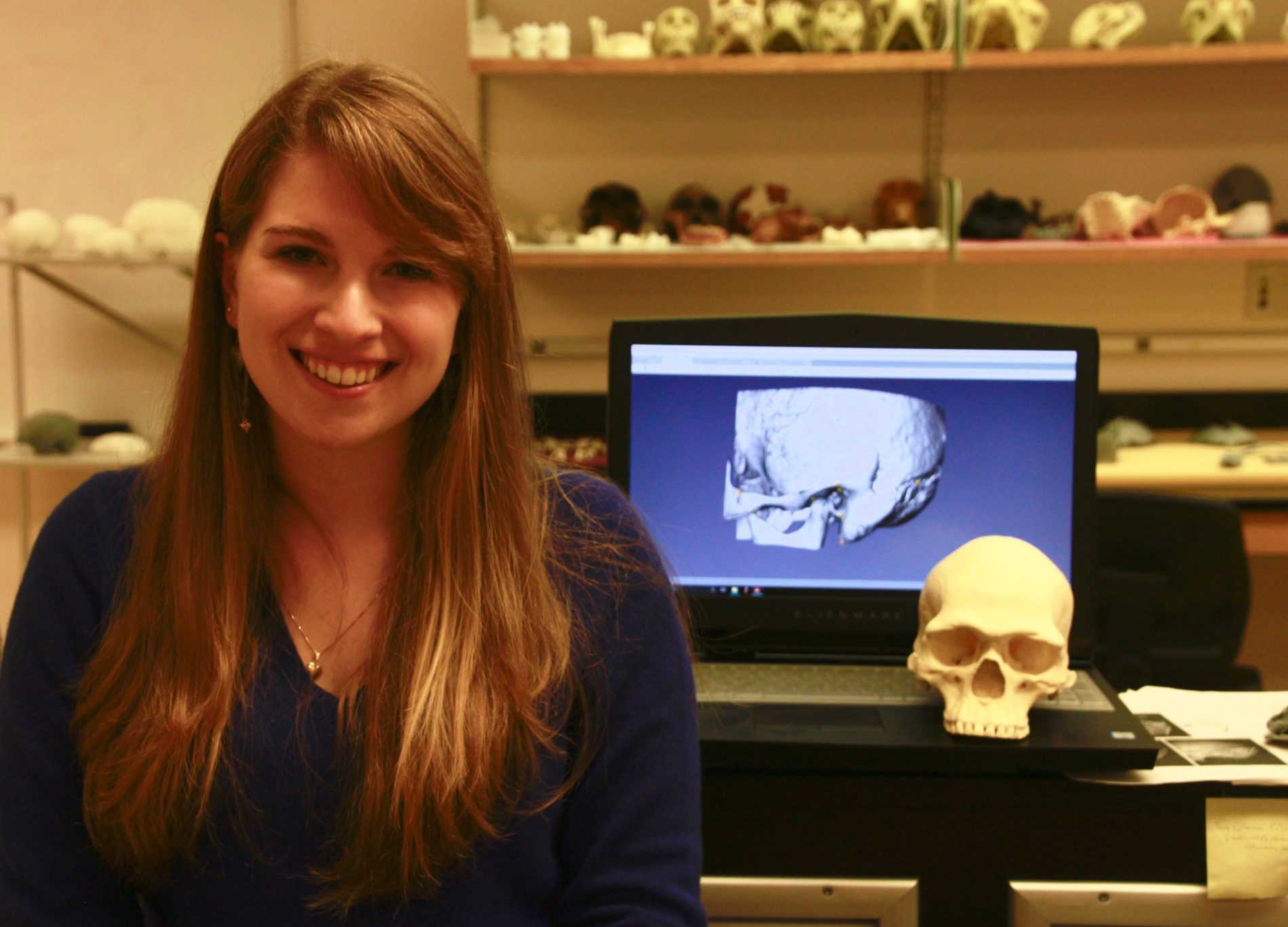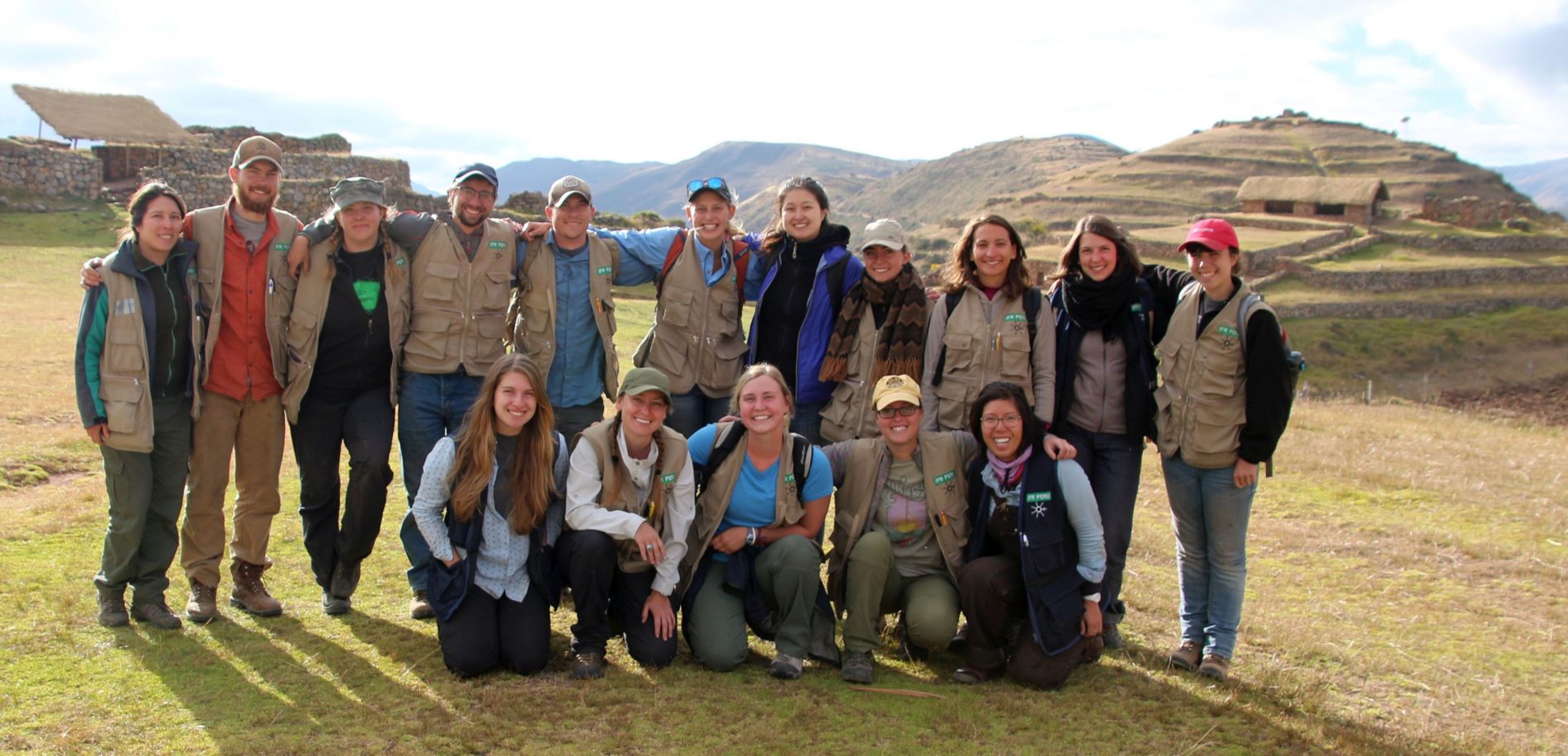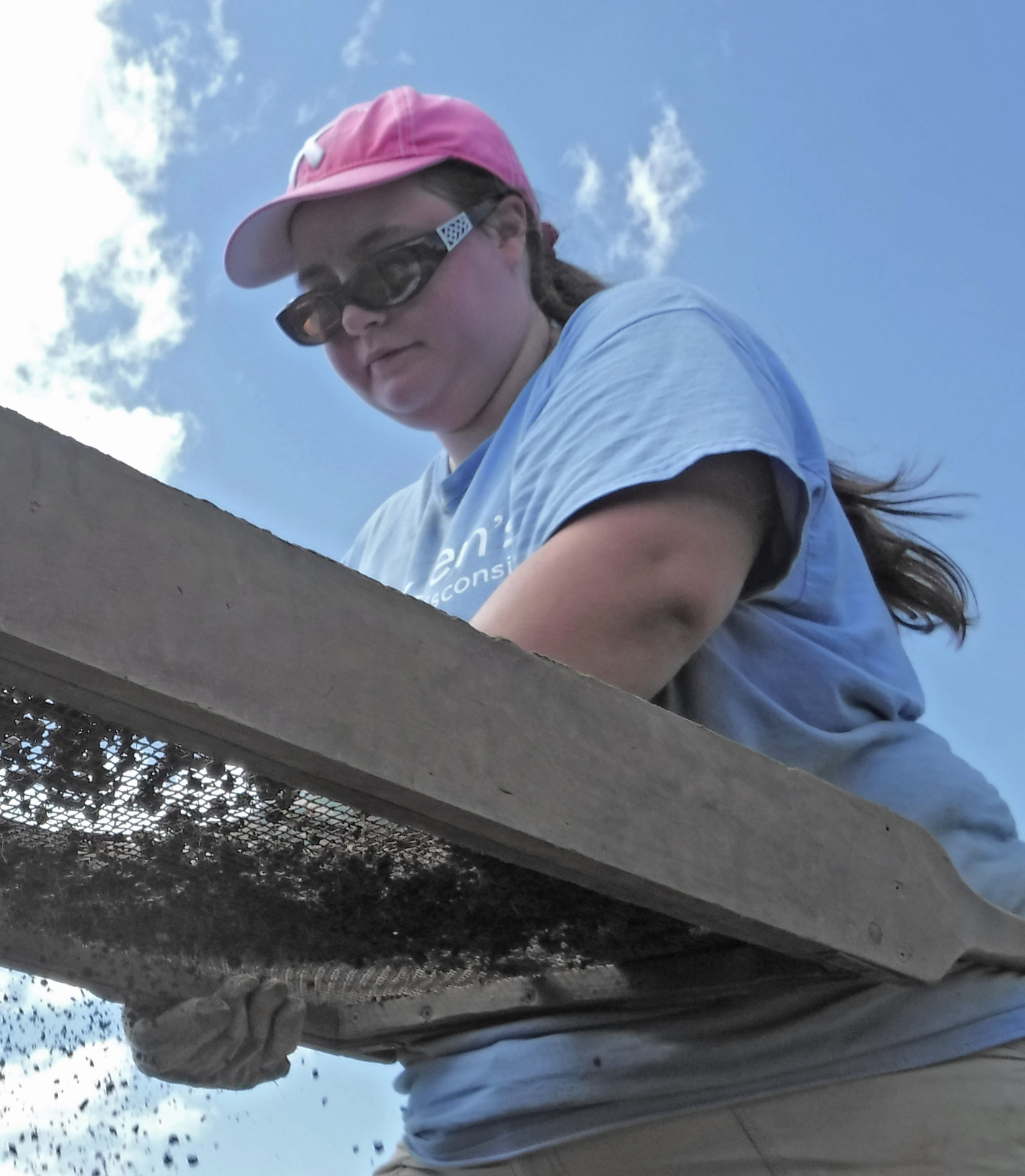Every year the IFR offers two SAA Travel Award scholarships, to give undergraduate students the opportunity to attend the most prestigious academic conference for archaeology in North America, the Society for American Archaeology. In addition to funding travel and participation in the SAA meeting, award winners are invited for dinner with attending IFR Academic Board Members so they may learn more about our career paths and board members may learn more about the student’s aspirations. We are proud to announce our two winners of the SAA Travel Award, Anna Lockhart (Peru-Sondor, 2017) and Jaelyn Roland, will be joining us this year in Washington D.C. Learn about their stories and what led them to apply for this opportunity.
 “I became passionate about archaeology last spring, but I did not fall in love with it until I attended the IFR Peru Sondor field school, during which I realized that I wanted to dedicate my career and my life to this extraordinary field. As an aspiring archaeologist, it is important for me both personally and academically to attend the SAAs. At the conference, I can broaden my exposure to the discipline and its different areas of focus, gain access to archaeologists and their research projects, and be inspired to come up with research ideas of my own to pursue in the coming years. There are so many different subfields and methods within archaeology that I have not yet been exposed to. The conference is a great way to learn about the diverse work various members of the field are participating in, which will help me pinpoint my interests and develop a more focused template for my studies. Attending the SAAs will allow me to talk with people I would not otherwise have access to. I will have the opportunity to talk one-on-one and learn about archaeologists’ specific projects, ask questions, and learn more about the discipline. Additionally, I will have the invaluable opportunity to meet and talk with other archaeology students who may one day be my colleagues, and see what kinds of research they are conducting.
“I became passionate about archaeology last spring, but I did not fall in love with it until I attended the IFR Peru Sondor field school, during which I realized that I wanted to dedicate my career and my life to this extraordinary field. As an aspiring archaeologist, it is important for me both personally and academically to attend the SAAs. At the conference, I can broaden my exposure to the discipline and its different areas of focus, gain access to archaeologists and their research projects, and be inspired to come up with research ideas of my own to pursue in the coming years. There are so many different subfields and methods within archaeology that I have not yet been exposed to. The conference is a great way to learn about the diverse work various members of the field are participating in, which will help me pinpoint my interests and develop a more focused template for my studies. Attending the SAAs will allow me to talk with people I would not otherwise have access to. I will have the opportunity to talk one-on-one and learn about archaeologists’ specific projects, ask questions, and learn more about the discipline. Additionally, I will have the invaluable opportunity to meet and talk with other archaeology students who may one day be my colleagues, and see what kinds of research they are conducting.
At the moment I am most interested in bioarcheology, perhaps because that was the focus of my field school. I am currently working with one of my professors on a project looking to make antimeric associations between isolated temporal bones buy topamax in us using ectocranial and endocranial landmarks. The idea is that if an individual’s temporal bones are more similar to each other than to unassociated temporals, we can make new associations that can be used in the reconstruction of crania from fragmentary bone. This can potentially be useful when working with fragmentary comingled remains.” (Anna Lockhart)

“I started the Archaeology program at the University of Wisconsin-La Crosse in the Fall of 2013 knowing that I wanted to be an archaeologist, but I had no idea where I wanted to work, I loved it all. After taking courses that discussed the archaeology of the Midwest and working with artifacts from the La Crosse area, I realized the archaeology of the Midwest had stolen my heart. In the fall semester of my third year I began a research project inspired by the research of Colin Betts (2006) examining epidemics during the Protohistoric period, in Iowa and Wisconsin and George Milner’s (2015) research on population decline and culture change in the midcontinent.

I began researching this topic because of my interest in cultural change and cultures in contact. I conducted an analysis of ceramics, comparing those from the late prehistoric La Crosse locality in western Wisconsin and the protohistoric Riceford Creek locality in southeastern Minnesota. I will be presenting the final results of this research at the SAA’s annual meeting in April, but my presentation is not the only reason I wanted to attend.
I wanted to attend the annual meeting for three reasons. First, attending will allow me to not only present my research, but to get feedback on my research and presentation style from other archaeologists. Second, attending the meeting will allow me to interact with other archaeologists and students of archaeology that I would not normally be able to. Finally, my attendance will allow me to see the hundreds of different presentations from many different geographical regions and theoretical perspectives, giving me greater knowledge on the field of archaeology. I will be graduating this spring from the University of Wisconsin-La Crosse and I hope to attend graduate school after working for a year or two in Cultural Resource Management. In graduate school I would love to continue doing research in the Midwest and all it has to offer. I have been a teaching assistant for four different courses in my time here at UWL and my hope is to become a professor someday after receiving my Ph.D.” (Jaelyn Roland)

